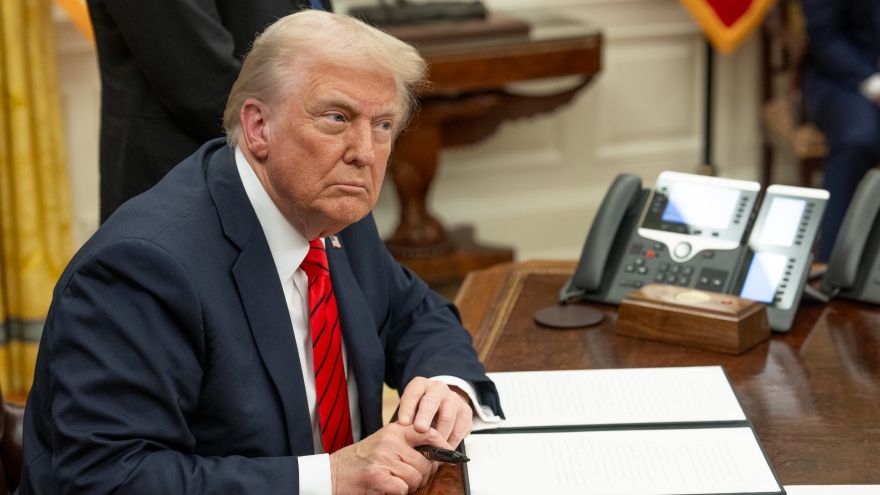Tariff tension continues to mount in US auto industry

White House photo by Daniel Torok.
By subscribing, you agree to receive communications from Auto Remarketing and our partners in accordance with our Privacy Policy. We may share your information with select partners and sponsors who may contact you about their products and services. You may unsubscribe at any time.
None of President Trump’s proposed tariffs have taken effect yet. But the threat of those tariffs looms large over the auto industry.
The announced 25% tariffs on all imports from Canada and Mexico, currently on hold, could have a significant impact on the industry, given the large amount of vehicles and components that cross the borders.
The Automotive Policy Council, an association representing the Big Three U.S. automakers, issued a statement from its president Matt Blunt urging the President to exempt automotive items that are in accordance with the 2020 United States-Mexico-Canada Agreement from the new tariffs.
“An integrated supply chain is vital to the success and competitiveness of Ford, GM and Stellantis, their customers, and the 436,000 Americans employed by these iconic companies,” Blunt said. “We support President Trump’s efforts to consider the entire global trade situation, including both tariff and non-tariff barriers. In the meantime, Ford, GM and Stellantis continue to believe that vehicles and auto parts that meet the USMCA requirements should not be subject to additional tariffs.”
Last week the Trump Administration also ordered increases in tariffs on steel and aluminum imports, raising the rate from 10% to 25% and eliminating existing exemptions. That order is scheduled to take effect March 12.
Those tariffs, CarGurus director of economic and market intelligence Kevin Roberts said, could present another major problem for a U.S. auto market that is already struggling to keep cars affordable for its customers.
Subscribe to Auto Remarketing to stay informed and stay ahead.
By subscribing, you agree to receive communications from Auto Remarketing and our partners in accordance with our Privacy Policy. We may share your information with select partners and sponsors who may contact you about their products and services. You may unsubscribe at any time.
“Because the auto production supply chain is so interconnected, tariffs on imported steel and aluminum could raise car prices, particularly those vehicles ma—de in the U.S.,” he said. “That could add pressure during a time when affordability is top of mind for consumers and automakers alike.”
Roberts noted 42% of American-made new cars are currently priced at more than $50,000, with larger trucks and SUVs — which use more of those materials and are already at the high end of the price scale — “especially at risk.”
He added the announcement of higher steel and aluminum tariffs “only magnify the uncertainty factor for today’s price-conscious buyers, especially when the proposed tariffs on Canada and Mexico are on hold but not off the table.”
Robert said the timing of all this is particularly precarious as spring approaches, advising consumers it might be best not to wait if they’re considering a vehicle.
“With the busy spring car-buying season just around the corner, shoppers stand to face even more challenges when it comes to affordability,” he explained. “The next few weeks may be the sweet-spot time to make a purchase to avoid the possibility of tariffs and spring market demand in March and April converging to add significant costs.”


